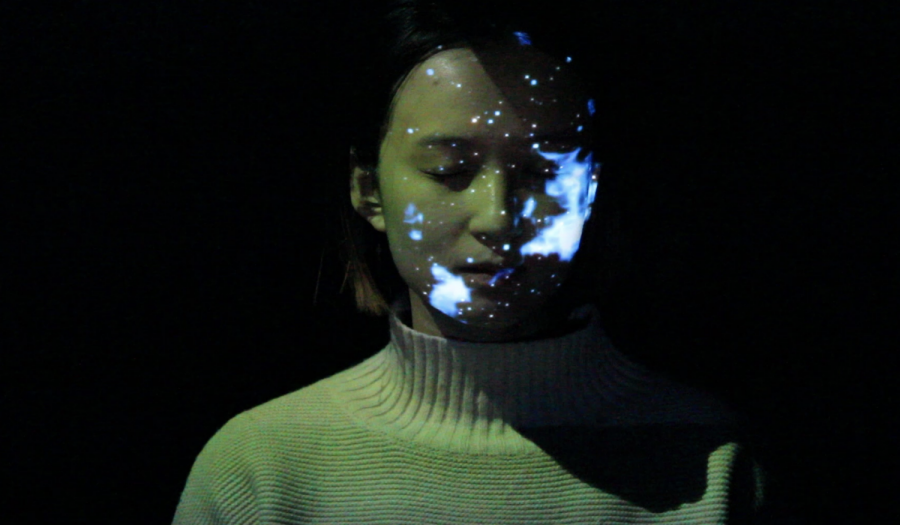
Huiyi Chen is a self-proclaimed cyborg. The installation artist and research resident at NYU’s Interactive Telecommunications Program (ITP) has always had a fascination with technology, but in the wake of the COVID-19 pandemic, this focus has taken on a newfound importance. Chen now uses her technology-infused art to foster empathetic connection in a time when social distancing has physically fragmented society.
From a young age, Chen started dabbling in a variety of art forms in search of her niche. She has been a writer, photographer and visual artist. After majoring in psychology for undergrad, she discovered technology’s ability to enrich artwork at ITP. After enrolling, Chen began using art to explore the dichotomy between benevolent and malevolent effects of technology on human beings.
“I started to become really interested about how technology has shaped our society and our identity and the way we perceive the world,” Chen said.
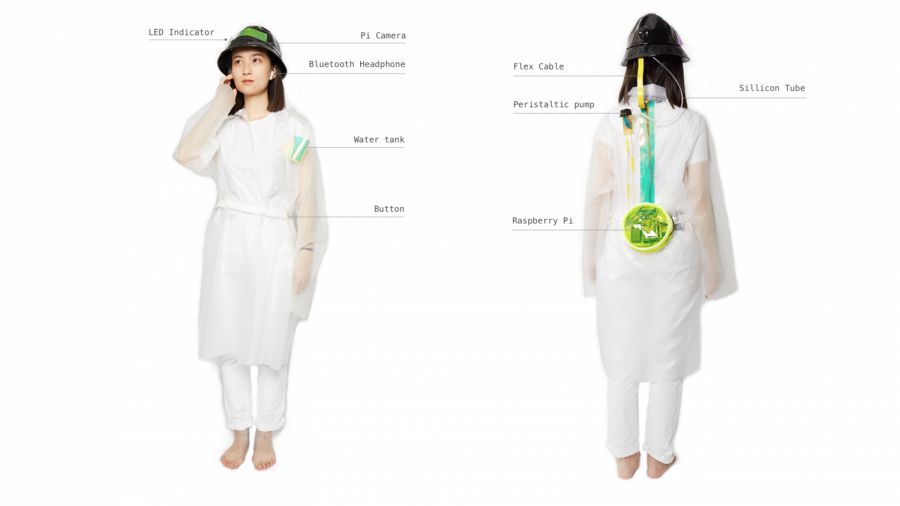
Chen has created several projects and exhibitions, including a series of exhibitions under the title “Today I Will Be A Better Human.” The project consisted of various items of wearable technology meant to increase the user’s connectivity to other people. A hat that records and logs the faces of the people the wearer encounters, entitled “I Will Never Forget Your Name.” A specialized funnel contraption that recognizes if another person is crying and pumps water to simulate tears for the user, called “I Will Always Understand You.” An inflatable jacket that binds a user in a mock-embrace, deemed “The Hugger.” Chen’s art embraces the absurdity and humor of itself, all while remaining tinged in melancholy.
“Language is limited,” Chen said. “But art, whatever form it’s in, has power to communicate complicated human feelings.”
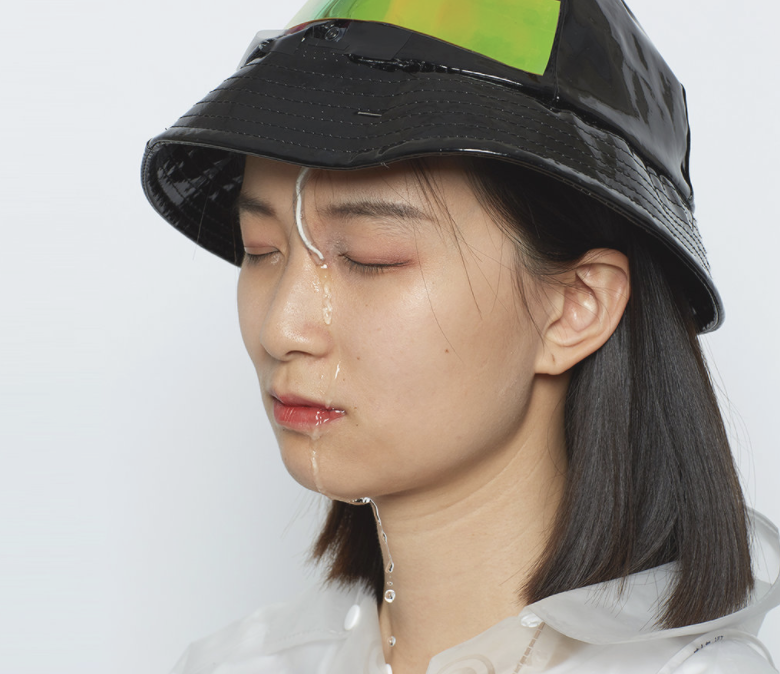
On March 7, before New York became the epicenter of the COVID-19 outbreak, Chen led me through ITP’s headquarters past an octagonal panel made up of tiny wooden squares. As we walked past, the squares flipped to mirror our movements with the fluidity of water. The space was reminiscent of a mad scientist laboratory from the future.
Chen’s office had a black curtain tapered across the back wall. When we ducked underneath it, I was greeted by a black booth illuminated by red and green disco lights. “Space Song” by Beach House blasted through speakers hung from the ceiling. It was a fitting tribute to a room that seemed to be submerged in sci-fi stylings. The environment was a utopia of creative expression.
But now, the office is inaccessible. After ITP closed its doors with the rest of the New York campus, Chen was no longer able to use the physical computing and fabrication tools that she previously had access to. Though she had to put numerous installation and performance-related projects on pause, Chen remained determined to keep moving forward with her art. Eventually, she turned her creative focus to using tech to add a compassionate edge to coverage of the COVID-19.
“All the emotional disturbance brought by this crisis and reflection on the crisis we are experiencing actually inspired me and motivated me to make work around it,” Chen said.
Chen currently collaborates with a team to create digital works that reflect on the pandemic’s widespread impact as well as memorialize those who have passed away.
“It is more difficult to collaborate, get feedback or conduct user testing,” Chen said. “All the things we used to take for granted now become a challenge. But so far they all worked out fine with the help of technology. Zoom and Notion are my best friends now.”
Despite her team’s inability to meet in person, their plans have still come to fruition. The first complete project is entitled “Qingming, A Sculpture of Condolence and Resilience.” A team project, Chen collaborated with many, including Rui An and Jiabao Li, to create an online space that Chen explained is meant to encourage visitors to reflect upon the immense loss of life that has occurred in the last few months.
When the website is opened, ambient music fills the aural space. The titular digital sculpture is placed in front of Hongshan Auditorium in a virtual map of Wuhan. It is made up of black concentric circles that symbolize the virtual paths walked around the space. When you add your name via a prompt, you become yet another dot wandering among many others. The overall effect is serene yet haunting.
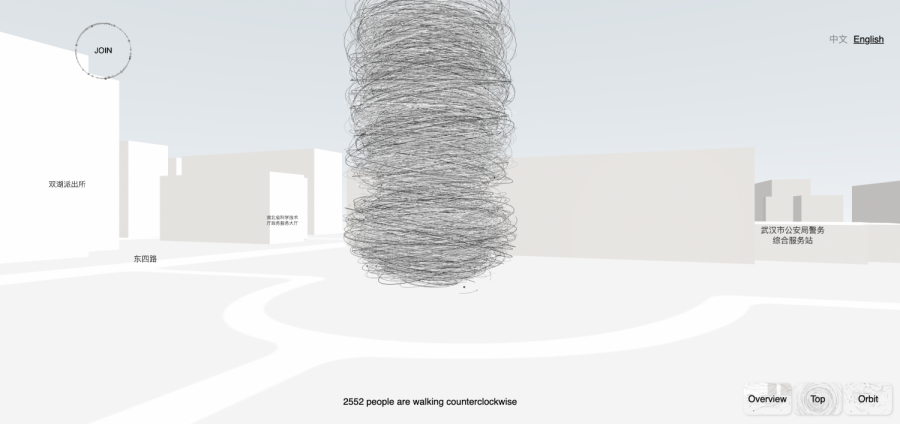
“This monument will permanently stand in front of Wuhan City Hall on major map websites,” Chen told WSN via email. “We also plan to print out the sculpture in physical forms when the quarantine is over.”
The artwork is dedicated to Qingming, a Chinese holiday that takes place on April 4. On the day of this festival, Chinese people venerate their ancestors by cleaning their tombs and gravestones. They will often offer food and joss paper — which symbolizes the currency of the dead — as sacrifices to pay their respects to the deceased.
Due to social distancing, many were unable to visit their loved ones on the holiday. By providing a place to commemorate the lives lost during this international crisis, Chen and her peers hope to expand upon what it means to grieve together.
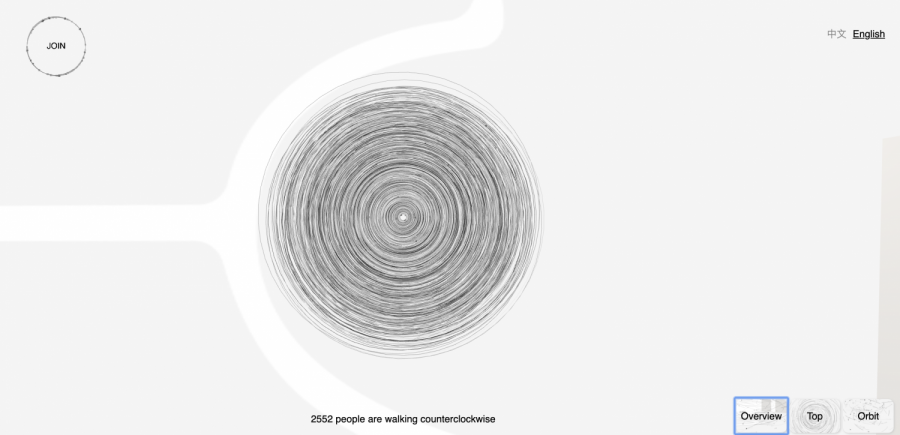
The second project, which is still a work-in-progress, is an interactive timeline of COVID-19, ranging from the date of its initial outbreak to the present. Dots of bright orange permeate the blackness of the screen, indicating spots where new developments or infections have occurred. If the screen is expanded, visitors can see the number of global confirmed cases and deaths on each date.
“This project is created in hopes to present the history of COVID-19 as a global event and provide accessible and verified information for analysis and cross-referencing,” Chen wrote.
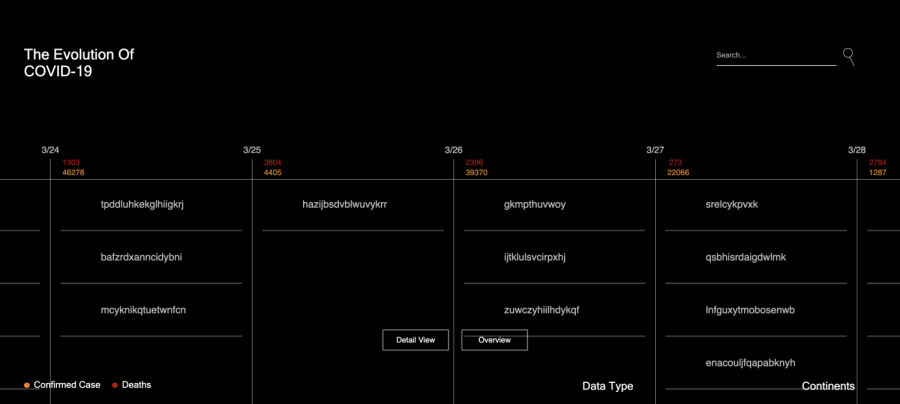
Both pieces are informed by Chen’s desire to create a more understanding, compassionate and informed world.
“It is heartbreaking to see how many people are dying every day,” Chen wrote. “It is disturbing to see how many social problems are being exposed from the crisis: unequal access to healthcare, political polarization, media bias, lack of global solidarity in the time we need it most.”
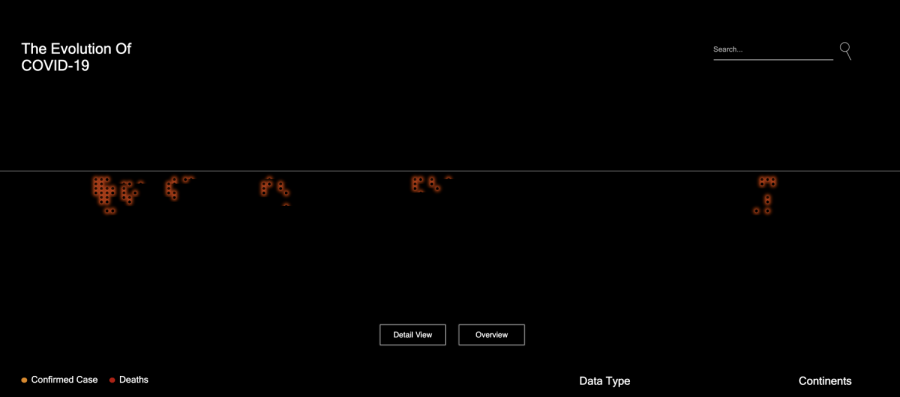
Despite her awareness of how systemic societal flaws have allowed the virus to conquer even more facets of everyday life, Chen is optimistic. She looks toward a more positive future involving technology and the opportunities it affords her as a creator.
“I feel a stronger responsibility than ever as an artist to create something meaningful,” Chen wrote. “I feel the urge to document the moment, to tell people’s stories in creative ways, and to bring awareness to social issues being exposed in the crisis. And [it] makes my quarantine suck less.”
Email Ashley Wu at [email protected]. Read more from Washington Square News’ Spring 2020 Arts Issue.






















































































































































